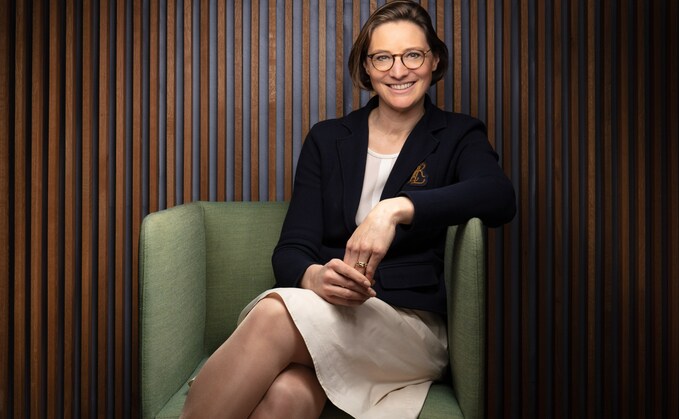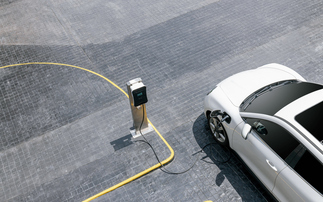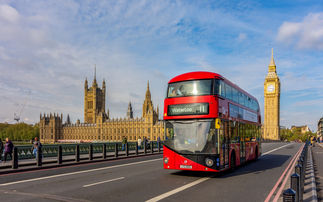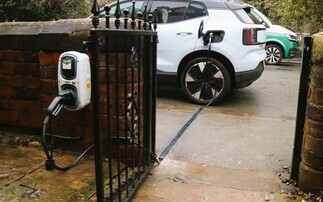
Kerstin Enochsson, Volvo Cars
Industry voice: Kerstin Enochsson from Volvo Cars explains why the company is investing in fossil-free steel for its vehicle manufacturing
The latest UN IPCC report provided a stark warning to us all. It is becoming increasingly clear that limiting global warming to well below 2°C, ideally 1.5°C, will require a gargantuan effort not only from national governments, but also from the international business community.
The corporate sector has a moral responsibility to rise to the challenge. The automotive industry is no exception. Global road transport is still responsible for around a fifth of global GHG emissions. Our industry is part of the problem and needs to be part of the solution. We need to act, and quickly.
We at Volvo Cars are proud of our ambitious plans to be the fastest transformer in our sector. We plan to be a fully electric car company by 2030, without caveats. However, for us, it is clear that the industry as a whole must move beyond the simple pursuit of zero-tailpipe emissions. It is not the silver bullet to mitigate our climate impact.
Indeed, our own lifecycle analysis (LCA) of our first fully electric vehicle, the XC40 Recharge, revealed that production emissions are greater than that of the petrol-powered variant. We need to address emissions across our full value chain. Within the supply chain alone, steel, aluminium and batteries are particularly carbon intensive - steel alone accounting for 20 per cent of the production emissions of an EV. So, Volvo Cars is aiming to reduce our lifecycle emissions per vehicle by 40 per cent by 2025, on our way to becoming a climate neutral business by 2040.
With the run-up to COP26 now in full swing, accusations of ‘greenwashing' around such promises have become more commonplace. We know that ambitious plans must always be followed by meaningful action.
That is why we entered into a partnership with SSAB to develop fossil-free steel for use in the automotive sector, with the aim to become the first car company to use it by 2026. And it's why we intend to build a Gigafactory with Northvolt to produce sustainable batteries. More widely, we are working with all our top suppliers to ensure they use 100 per cent renewable energy by 2025. Collaboration is key in the Race to Zero.
I was delighted to discuss the importance of fossil free steel in our 2040 journey with colleagues from SSAB and the Climate Group during BusinessGreen's Net Zero Festival. I also highlighted the fact that that the automotive industry is uniquely placed to act as a catalyst for positive change in many other carbon intensive sectors - through the demands we place on our suppliers.
And we are certain that our climate action is starting to filter through to our bottom line. Today, roughly one in four of all Volvo vehicles sold around the world are either hybrid or fully electric. And our latest H1 results show an increase in retail sales of 12 per cent and our earnings-before-tax margin has jumped to 9.4 per cent. Both are good indicators of Volvo Cars' continued growth prospects.
It is also clear to us that having a strong focus on sustainability isn't simply an environmental necessity, it also makes good business sense. Not only in terms of meeting growing consumer demand for more sustainable products, but also in terms of attracting investors and employees. For example, our inaugural €500m Green Bond dedicated to the development and production of our fully electric vehicles was oversubscribed five times. By protecting the planet, global companies can protect their future. Our experience is clear evidence of this.
But we are not resting on our laurels. We know that electrification alone, for all its benefits, will not be enough to ensure that the automotive industry meets its climate commitments. As some of the biggest polluters, car makers have a duty to play their part in reducing carbon emissions throughout the whole value-chain and we must not shy away from this task.
I believe we in the car industry are at a crossroads. One fork leads to climate catastrophe and obsolescence. The other fork, even though it is the harder to walk, will lead us to a more sustainable future and a healthier industry. We at Volvo Cars are choosing to take the more difficult path - and, ahead of COP26, we implore all of our partners to join us on this journey.
Kerstin Enochsson is chief procurement officer at Volvo Cars.
Volvo Cars is a partner of the Net Zero Festival.






